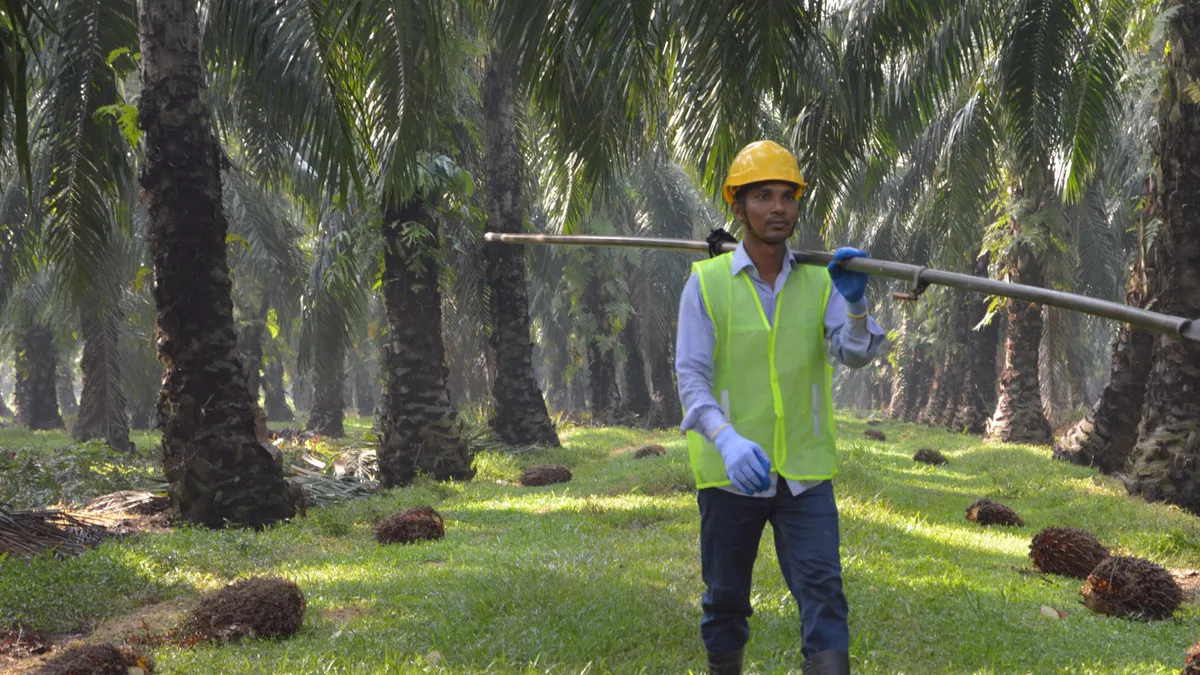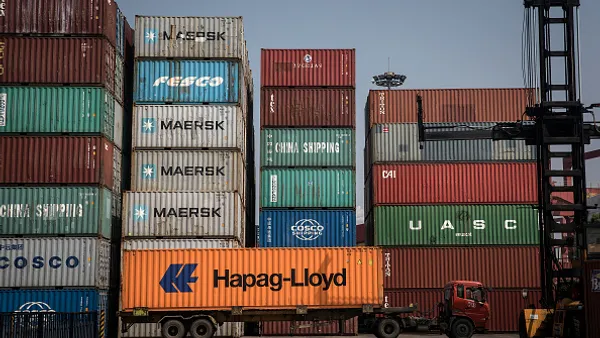Dive Brief:
- Mars will reduce its palm mill supplier count from roughly 1,500 to under 100 by the end of the year, in an effort to drastically simplify its supply chain to increase transparency, the company announced Tuesday. Mars said it will reduce the count further to 50 mills by 2022.
- The company claims to have achieved a deforestation-free palm oil supply chain, as it has phased out existing annual contracts to reach the sub-100 mill count.
- The 94% reduction in contracted mills will not stress Mars' palm oil supply, according to a spokesperson. "Through our process of simplification, we’re focusing on awarding longer-term contracts and building closer partnerships with the suppliers that are remaining in our supply chain. This doesn’t affect the scale of palm oil that we’re purchasing, but rather who we’re buying from," a Mars spokesperson said via email.
Dive Insight:
The sprawling, complex nature of the palm oil supply chain has long been a barrier to transparency. Mars' plan to tackle it involves drastically reducing the number of mills it must monitor.
"For years, businesses have grappled with complex and opaque palm supply chains. It is now clear that this has not been enough to guarantee no deforestation or human rights issues," Chief Procurement and Sustainability Officer Barry Parkin said in a statement.
Deforestation isn't the only pervasive problem in the palm oil supply chain. Customs and Border Protection recently issued a withhold and release order on imports from a Malaysian producer and its subsidiaries after an investigation found indications of forced labor and possible child labor.
Palm oil stakeholders, from sourcing organizations to environmental groups, have seen little progress in stemming deforestation, despite sustainability certifications in the palm oil market for more than a decade. And sustainability audits will not reveal labor issues. So, new tactics have come into use.
Mars, for example, sourced 100% certified responsible palm oil beginning in 2013, but the company still pursued traceability. In 2018 the company reached 99% visibility to the mill level and published its list of palm oil mills. Mars, Nestlé, Unilever and others use satellite imagery to monitor land use and farm operations, for example.
Mars combines satellite monitoring and active supplier management tactics with third-party verification from Earth Equazlier/Aidenvironment — and fewer suppliers will make this work more manageable.
"By radically simplifying our palm supply chain, partnering with a smaller cohort of suppliers and rigorously applying the three M’s of Mapping, Management and Monitoring we can eliminate deforestation and advance respect for human rights," Parkin said. The company is working on expanding the goal of removing deforestation from its supply chain to beef, cocoa, pulp, paper and soy.














